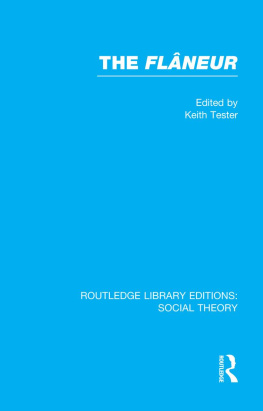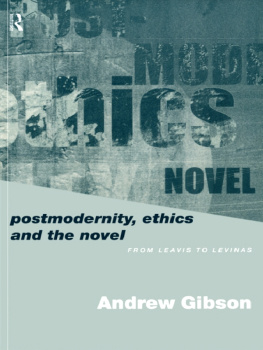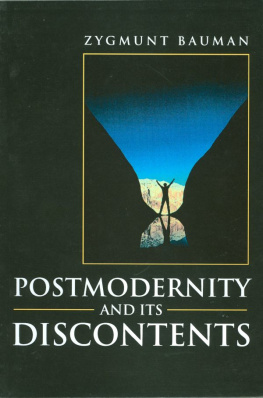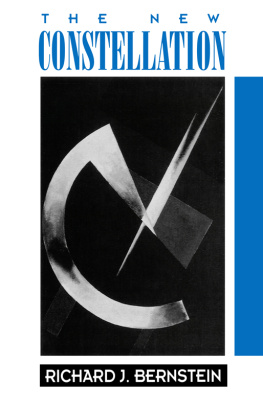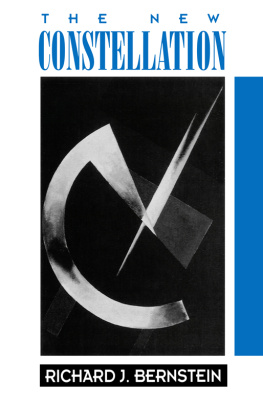First published 1993
by Routledge
11 New Fetter Lane, London EC4P 4EE
This edition published in the Taylor & Francis e-Library, 2003.
Simultaneously published in the USA and Canada
by Routledge
29 West 35th Street, New York, NY 10001
1993 Keith Tester
All rights reserved. No part of this book may be reprinted or reproduced or utilized in any form or by any electronic, mechanical, or other means, now known or hereafter invented, including photocopying and recording, or in any information storage or retrieval system, without permission in writing from the publishers.
British Library Cataloguing in Publication Data
A catalogue record for this book is available from the British Library
Library of Congress Cataloging in Publication Data
A catalog record for this book is available from the Library of Congress
ISBN 0-203-21698-9 Master e-book ISBN
ISBN 0-203-21710-1 (Adobe eReader Format)
ISBN 0-415-07545-9 (Print Edition) 0-415-09832-7 (pbk)
Introduction
A fine setting for a fit of despair, it occurred to him, if I were only standing here by accident instead of design.
Franz Kafka
The real dwelling plight lies in this, that mortals ever search anew for the essence of dwelling, that they must ever learn to dwell.
Martin Heidegger
to be absolutely modern means to be the ally of ones grave diggers.
Milan Kundera
In two of my earlier books, The Two Sovereigns and Civil Society, I tried to come to terms with some of the hopes and disasters of European modernity. In particular, I tried to provide some thoughts on why the enterprises of modernity always seemed to burst into flames, or just dissipate into irrelevance, at more or less precisely the moment when their realization seemed to have become a distinct possibility.
It was implicit to the assumptions of those essays that to be writing about modernity as an item of interest rather than as a universally lived, experienced and inhabited condition, meant that I was not self-evidently and easily within the boundaries of the modern. I was, so to speak, without its bounds. But to some extent, I must have been within the boundaries of something to be able to know that I was outside the boundaries of something else. As such, it might be said that this book is concerned with the conditions which constitute the ground from which it is possible to see modernity.
In this book, I have tried to provide a clearer picture of my interpretation of the condition from which I was perceiving modernity. With this book, I have tried to go a little way towards upholding the maxim of Alvin Gouldner and put the cameraman back into the picture. It is up to you to decide whether the picture is clear and interesting or so out of focus as to be incoherent.
Consequently, this book is concerned with some of the hermeneutic stakes and conditions of possibility of the debates on modernity and, for that matter, post-modernity itself. However, I hope that this book is of more than autobiographical importance (I hope it is about more than one lone cameraman). After all, I am a sociologist and I struggle to practise something called sociology. And as a good sociologist, I assume that I inhabit along with numerous others a specific kind of social and cultural milieu. I am not an isolated, Robinson Crusoe type of figure who stands apart from the world. To understand you and I is, in the first instance, to understand the relationships which together make us what we are. Consequently, this book is about social and cultural worlds. It is not at all about entirely personal events.
In these ways then, The Life and Times of Post-modernity represents an attempt to think beyond the terrain which was mapped in The Two Sovereigns and Civil Society. Part of that thinking beyond has meant that I am now much less enthusiastic about the possibilities and implications of post-modernity than I was in the earlier books (and even then, my enthusiasm was always tempered by a niggling doubt about some of the great claims which had been made for post-modernity).
However, The Life and Times of Post-modernity does have some things in common with the other two books. Not least, like the other efforts The Life and Times of Post-modernity is explicitly an essay in interpretation. In many ways, it is a speculation. Once again, this book does not pretend to give the right answers, and neither does it pretend to contain the keys to the ultimate truth. I would not even pretend that it necessarily asks all the most pertinent questions, although I hope that it raises interesting and useful problems. The book is simply an essay which attempts to work out why the kinds of people who write and read about post-modernity (people like you and I) seem to see the world in some ways as opposed to others.
I know that these largely hermeneutic interests might well leave my work (if that phrase is not too pompous) open to a number of criticisms. In many ways, that is something to be accepted if not actively encouraged; after all, the kind of sociology I am engaged in is about proposing alternative ways of seeing without offering a best or only alternative. However, it seems to me to be worth spending a little time considering the potential criticism that this book, just like The Two Sovereigns and Civil Society, represents a writing of the world which pays little or no attention to what happens in real life. It could be said that I have a tendency to reduce the world to the status of a writing and a reading, when I should be more concerned with the reflection on practices in and of the world (that is, I reduce everything to ideas rather than to material actions and circumstances).
I suppose this criticism is to some degree encouraged by my tendency to seemingly eschew the orthodox stage props of sociological justification and instead, to engage in a dialogue with authors. I talk about other books so frequently, and tend to draw my evidence from them for two reasons. Firstly, novels are so much more interesting and profound than most pieces of sociology. They are definitely much better written. This is a largely aesthetic justification. Secondly, there is a moral reason which has been stressed by Richard Rorty. Rorty says that the novel, the movie, and the TV program have, gradually but steadily, replaced the sermon and the treatise as the principal vehicles of moral change and progress (Rorty 1989:xvi). According to Rorty then, moral progress and the signposts to the Ways Forward are not to be found in the products of academia (therefore they are not to be found in this book). Instead, they are to be found in other kinds of cultural production. Unfortunately, I know little of the cinema and good television and so I can only refer to that world (literature) which is a little less mysterious to me. In other words, I am trying to work in the light of Richard Rortys position although I do have doubts over the usefulness of notions like moral progress (however liberally and decently the progress might be defined).


